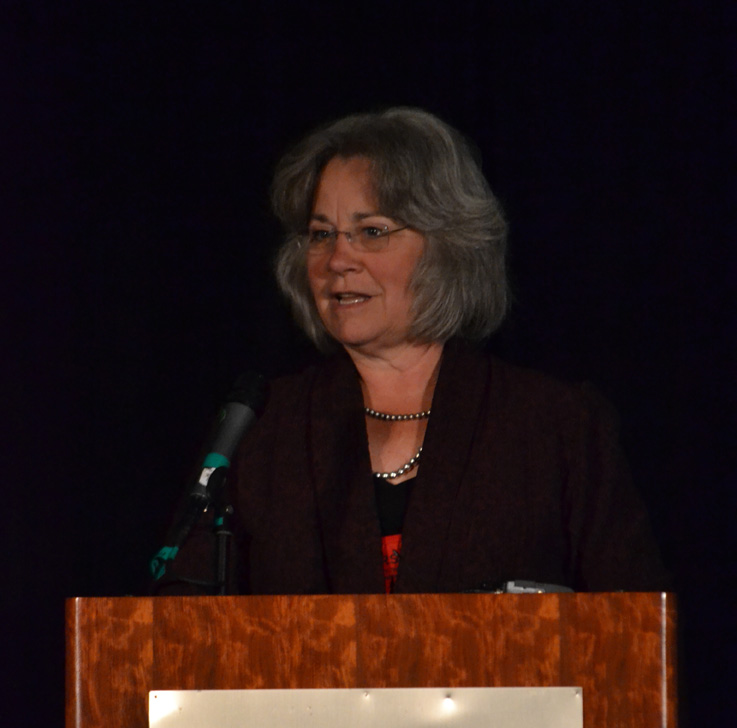Research Moves Forward as MHSRS 2012 Comes to a Close

Closing out another year of medical advancements for the nation's warfighters, the 2012 Military Health System Research Symposium wrapped up its annual conference in Fort Lauderdale, Fla. Aug. 16. There was much enthusiasm throughout the conference hall during the four-day symposium, which is sponsored by the Assistant Secretary of Defense for Health Affairs, and organized by the U.S. Army Medical Research and Materiel Command, in a joint effort supported by the U.S. Army, Navy, and Air Force.
"I think that this conference is important for all of us, and is a unique opportunity to come together across our many disciplines and backgrounds so we may understand each other's needs better," said Dr. Karen Guice, Principal Deputy Assistant Secretary of Defense for Health Affairs.
With each passing year, there has been an increase in the number of non-DoD personnel attending the conference, such as those from corporations, academia, and clinics, who come to learn more about new advances in the field.
"Partnerships across government and with the private sector are the key to long-term success, and these partnerships must deepen in the coming decade," said Guice. "New technologies, new medications, new biomarkers or imaging systems ' they all require partnerships. This entails long-term investments from government, and the sustainment of trusted, evidence-based research and product development throughout the private sector."
The concept of success through partnership held true for this year's meeting as well, as the 2012 conference is the first to combine three previously separate conferences into one joint symposium by the Army, Navy, and Air Force.
"It's the best research conference we've ever had," said Col. Dallas Hack, chair of the MHSRS. "The participation of the U.S. Air Force and Navy, together with the Army, has made it better than I would have ever imagined."
And the tremendous synergy between all of the Services produced a meeting of historical significance.
"We had a record turn-out this year," said Hack. "I'm amazed at the level of support and participation. We had more than 1,500 participants registered."
"Having a large meeting like this," he said, "with all of the collaboration and interaction, saves us from having dozens of other meetings, and it really accelerates the process of pulling together the work that we're doing to provide solutions for our warfighters."
Originally established 15 years ago as Advanced Technology Applications for Combat Casualty Care, this newly structured conference should continue to unify researchers as they seek ways to aid the nation's warfighters before, during and after deployment.
Dealing with medical issues among military personnel that include post-traumatic stress disorder, suicide, traumatic brain injury, and amputation takes a great deal of effort from many individuals on multiple levels. Therefore, a primary goal of the MHSRS each year is to seek effective ways to ensure the physical and psychological well-being of the warfighter.
"Our medical research and development program is an indispensable element of national security," said Guice. "It is important to the men and women we serve, and to all Americans who eventually benefit from the discovery and dissemination of our research."
Although the research is initially pursued from a military perspective, the results eventually reach into the practice of civilian medical providers who utilize the findings to assist millions throughout the world. With nearly 500 conference presenters offering information on recent and future research, it is very likely that much of this information will make its way into standard medical practice in the near future.
Regarding the future of the MHSRS, Hack said, "Soon after the last presentation, we'll be starting to plan next year's meeting!"
Will it be bigger?
"I don't know if it will be bigger," said Hack, "but we're certainly going to work at keeping it as good!"
 An official website of the United States government
An official website of the United States government
 ) or https:// means you've safely connected to the .mil website. Share sensitive information only on official, secure websites.
) or https:// means you've safely connected to the .mil website. Share sensitive information only on official, secure websites.


